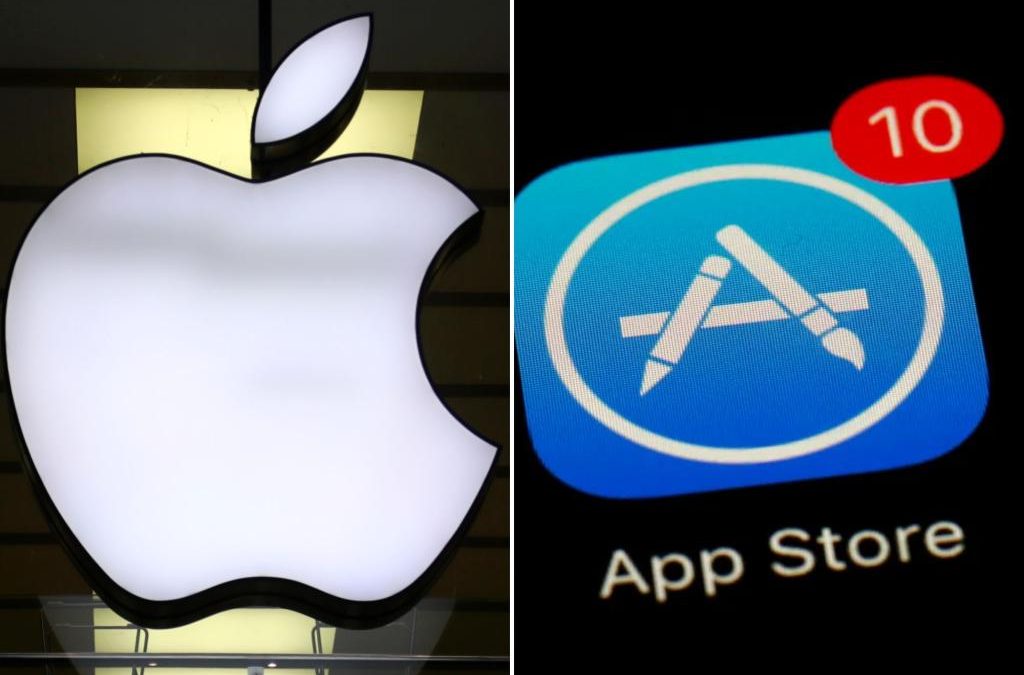European Union regulators slapped Apple with a whopping $2 billion antitrust fine on Monday for “abusing a dominant position” in the music streaming industry through its App Store practices.
The European Commission determined that Apple has illegally restricted music app developers from advertising cheaper ways to subscribe to their streaming services outside the App Store – where the Cupertino, Calif.-based firm is known to charge fees of up to 30% on downloads.
The massive penalty is the first of its kind handed out by the European Union. The commission investigated Apple following a complaint filed by streaming giant Spotify nearly five years ago.
“Apple’s conduct, which lasted for almost ten years, may have led many iOS users to pay significantly higher prices for music streaming subscriptions because of the high commission fee imposed by Apple on developers and passed on to consumers in the form of higher subscription prices for the same service on the Apple App Store,” the European Commission said in a statement.
Officials said that Apple’s conduct was specifically found to have violated the bloc’s “anti-steering provisions” which is “illegal under EU antitrust rules.”
The European Commission said the fine, which was larger than most experts expected, was determined to be “proportionate to Apple’s global revenues and is necessary to achieve deterrence.”
The commission ordered Apple to stop restricting music streaming apps and from adopting similar practices in the future.
Apple shares sank nearly 2% after the opening bell.
The company said it would appeal the decision – a process likely to take several years – and asserted that the European Commission’s move had failed “to uncover any credible evidence of consumer harm, and ignores the realities of a market that is thriving, competitive, and growing fast.”
While the appeal plays out, Apple will be required to pay the fine and comply with the European Commission’s order.
“Apple has been a part of Europe for over 40 years, and today, we support more than 2.5 million jobs across the continent,” the company said in a lengthy blog post. “We’ve helped markets thrive, promoting competition and innovation at every turn — and the App Store is an important part of that story.”
“So while we respect the European Commission, the facts simply don’t support this decision,” Apple added.
Apple called out what it described as Spotify’s “coordination with the European Commission,” which has allegedly included more than 65 meetings between the two entities since 2015 as officials sought the proper legal theory to support a case.
The company asserted that none of their efforts to build an antitrust case had shown clear evidence of consumer harm or anti-competitive behavior.
Apple also blasted Spotify for maintaining a monopoly over music streaming, with more than 50% share of the market in Europe.
Spotify has benefitted from extensive software support from Apple’s engineers despite paying the company “nothing” in commission because it sells subscriptions through its website, Apple added.
“Free isn’t enough for Spotify,” Apple’s blog post said. “They also want to rewrite the rules of the App Store — in a way that advantages them even more.”
Apple representatives did not immediately return The Post’s request for further comment.
Spotify, a staunch critic of Apple’s App Store practices, lauded the European Commission’s decision even as it pushed the regulatory body for “next steps” that would “hopefully clearly and conclusively address Apple’s long-standing unfair practices.”
“This decision sends a powerful message — no company, not even a monopoly like Apple, can wield power abusively to control how other companies interact with their customers,” Spotify said in a statement.
The fine was announced even as Apple and other tech giants scramble to comply with the European Union’s sweeping Digital Markets App ahead of a March 7 deadline.
The law is focused on six “gatekeeper” companies — Google parent Alphabet, Amazon, Apple, TikTok parent ByteDance, Facebook and Instagram parent Meta and Microsoft – and meant to ensure smaller firms have a level playing field.
Source




